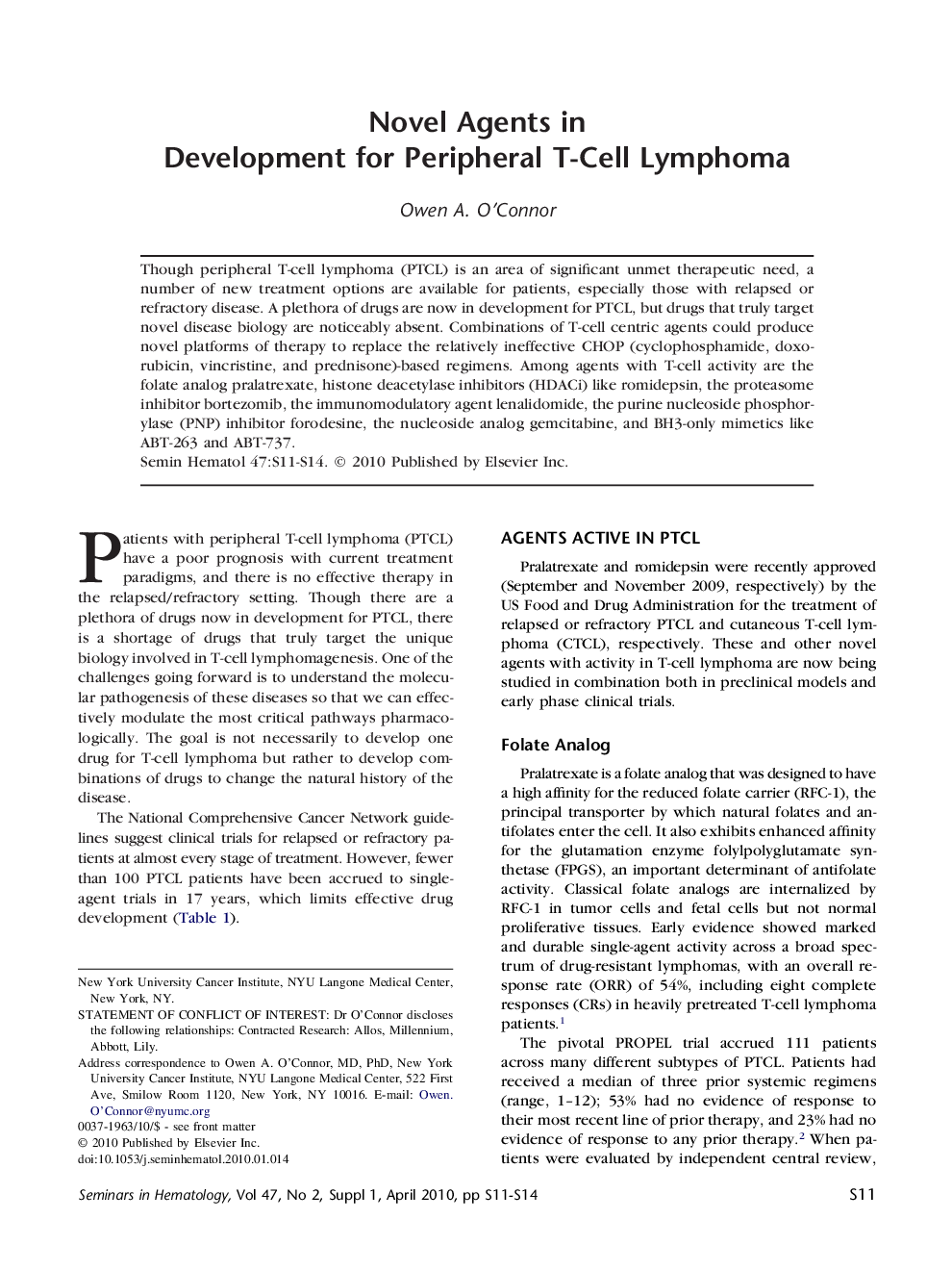| Article ID | Journal | Published Year | Pages | File Type |
|---|---|---|---|---|
| 3333754 | Seminars in Hematology | 2010 | 4 Pages |
Though peripheral T-cell lymphoma (PTCL) is an area of significant unmet therapeutic need, a number of new treatment options are available for patients, especially those with relapsed or refractory disease. A plethora of drugs are now in development for PTCL, but drugs that truly target novel disease biology are noticeably absent. Combinations of T-cell centric agents could produce novel platforms of therapy to replace the relatively ineffective CHOP (cyclophosphamide, doxorubicin, vincristine, and prednisone)-based regimens. Among agents with T-cell activity are the folate analog pralatrexate, histone deacetylase inhibitors (HDACi) like romidepsin, the proteasome inhibitor bortezomib, the immunomodulatory agent lenalidomide, the purine nucleoside phosphorylase (PNP) inhibitor forodesine, the nucleoside analog gemcitabine, and BH3-only mimetics like ABT-263 and ABT-737.
